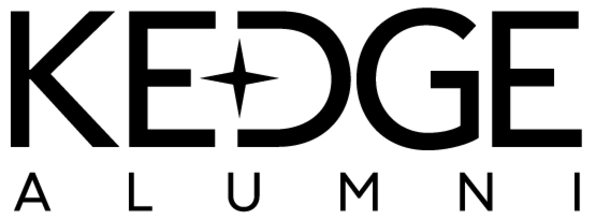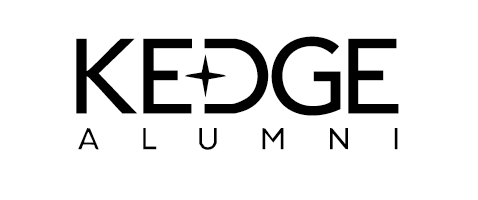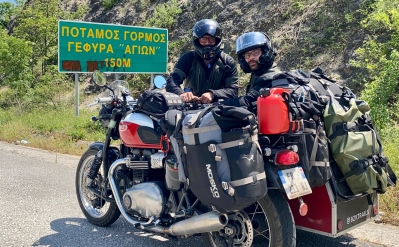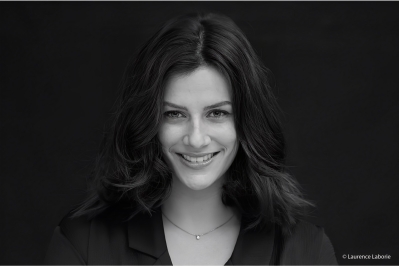News
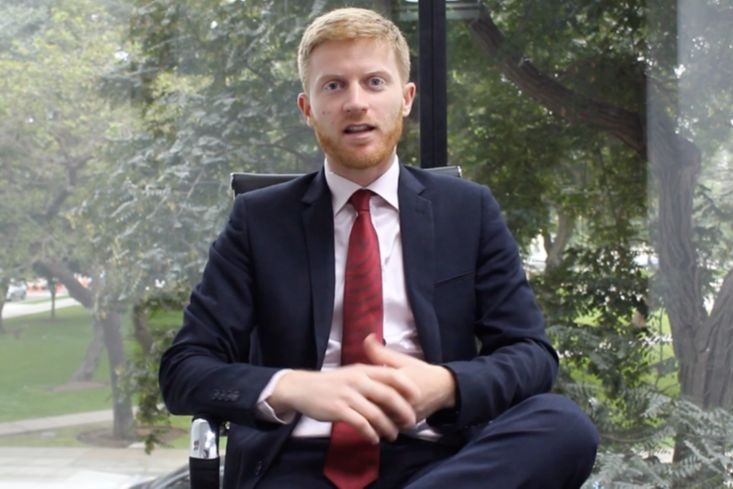
Meeting Maxime, a KEDGE Graduate Living in Lima
The five students from the "KEDGE Alumni Success" pro-act are currently in South America, meeting with our alumni.
Can you tell us about your academic background and your time at KEDGE? In what context did you study there?
After graduating with a Baccalauréat ES, I enrolled in a preparatory class for top business schools in Orléans. Then I joined EUROMED in Marseille. The year after I graduated, EUROMED Marseille merged with BEM (Bordeaux École de Management).
In my third year, I followed the standard post-prep track. Then I completed my Master’s degree through a work-study program, where I worked at Orange in the Key Accounts department in Paris.
Between my third year and my Master’s, I had the opportunity to come to Peru for an exchange at a local partner university. That allowed me to fulfill the international experience requirement for graduation. Initially, I wanted to go to a country where English was spoken! In the end, I landed in Peru—it was my tenth choice, and I didn’t even know where the country was on a map! (Laughs) But I have great memories of it, because that’s when I met my wife—she was my student mentor when I arrived in Peru! (Laughs)
To be honest, those were very intense years: between classes, pro-acts, and the work-study program, I had a hectic schedule. But you know what I mean (laughs). On top of that, when you're in a work-study program, you have to write two dissertations, unlike those who follow the à la carte track. I have no regrets—it was incredibly enriching.
More specifically, during my work-study, I assisted a Sales Engineer by drafting proposals and trying to convince clients to buy at our prices. When I joined KEDGE, I was looking for hands-on, practical training focused on sales. The courses and professors at EUROMED really delivered what I was looking for.
Oh, and I almost forgot! I don’t know if it’s important, but I also did an internship at Chanel thanks to EUROMED. It was a three-month summer internship in sales—an amazing first experience in a major company.
Why did you decide to move to Lima? Was it a personal desire or an opportunity you seized?
That’s a good question—my wife and I (well, my girlfriend at the time) thought a lot about it. She had finished her studies, and I hadn’t quite yet. In the end, we decided I would move to Peru. It’s definitely easier for a French person to expatriate to Peru than for a Peruvian to move to France! Plus, my wife didn’t speak any French. I had some support—I lived with her grandmother and had help securing a work contract. So it was a bit tough at first. Especially because there’s a tricky issue in Peru—it’s a bit of a catch-22 (laughs). To get a visa, you need a work contract. But to get a work contract, you need a visa. Complicated!
So I’ve now been in Peru for six years! At first, it was hard—I'd worked at Orange and studied at EUROMED, but no one here knew those names. Luckily, I had six months of exchange experience at the best university in Peru. After applying non-stop for six months, I was hired by a French-Peruvian woman. It was a company with a factory and Peruvian laborers—I had to adapt. It was a bit of a struggle, especially since I lived on the other side of the city and had to take the company bus. All that for €700–800, basically minimum wage. Ten months later, the company was bought by an Israeli firm, and I worked as a Business Analyst specializing in candy. It was fun—I remember one time we had to pitch to Nestlé about which colors and shapes they should focus on to follow candy trends. (Laughs)
Then I was approached by a company called Trans Total. I got a 50% salary increase and worked in a maritime agency where we operated in English. I was a Sales Analyst—it was both commercial and highly technical. You had to calculate ship sizes to fit in the port, cargo weight, time spent at port, and all that tied to billing. I really grew a lot there. I improved processes, took initiative, and my manager trusted me—I was truly fulfilled. A year and a half later, Michael Page, a recruitment firm, contacted me again. We’d had a first contact two and a half years earlier, but nothing came of it. I hesitated—I had just gotten a raise at Trans Total—but my wife told me to go for it, and I listened!
I had to quickly learn about recruitment and HR. I was assigned to the logistics division. I only knew the maritime world—not trucks and warehouses. Looking back, I think I made the right choice. Today, we’re 90 employees here, while Trans Total shut down an entire floor… (laughs). In a year and a half, I’ve really grown and become a local expert in Supply Chain recruitment! Later, I was given assignments related to factories, so my scope expanded even more. Career-wise, I followed the standard path up to Manager.
Later on, management announced they were launching a new unit: Page Personnel, specializing in junior profiles. So we launched the brand! My scope expanded again—now, in addition to factories and warehouses, I also handle assignments related to mining (metallurgy) and engineering (construction, technical). Today, there are seven people on my team, including two interns. We have a high turnover rate because the pace is super intense—over 50–60 hours a week!
After six years, I’ve managed to build something stable, but it wasn’t easy. You need perseverance and dedication.
What differences do you notice in the way people work between Brazil and France?
Oh yes! First of all, in terms of profiles, people don’t have the same capabilities as in France, and it’s immediately noticeable—they don’t take initiative and struggle to make decisions. So it’s easy to stand out. The hard part is finding a good company; after that, it’s easy to move up. But that’s due to the education system—universities here are entirely based on an economic model and don’t rely on public services at all.
Secondly, because of the very low salaries, there’s a high turnover rate. But that’s normal here—it’s socially accepted! In France, changing employers every six years might not be viewed positively. Here, there’s very little attachment to the company. It’s seen more as a stepping stone, at least in the beginning.
The academic logic is different too, but again, it’s cultural. In France, it’s rare to see forty-year-olds still studying while working. Here, it’s common. That’s due to the influence of the American model. People get their bachelor’s degree, work for four or five years because they need to earn a living and studies are expensive, then they go back for a master’s. Most of them even go abroad for their master’s, as it’s often their first real opportunity to travel. They all still live with their parents, because with €500 a month, it’s impossible to be financially independent.
Also, traditionally, cohabitation doesn’t exist. In other words, you don’t live with your partner unless you’re married. We ourselves had to come up with some creative solutions to live together before getting married. (Laughs) It’s a different mindset.
They have little to no financial literacy. A young French graduate will generally use their first salary wisely. Here, one month after getting hired, they’ve already bought a car on credit.
What are your plans for the future? Where do you see yourself in 5 years? In 10 years?
My wife and I talk about it a lot—we’re thinking about returning to Europe. And let’s be honest, Europe and France are a dream for most Peruvians. That said, I’m torn because there are so many business opportunities here. Peru has a growth rate of 4 to 5% per year. Mining—especially gold—and agriculture are sectors attracting a lot of investment. Peru has been the world’s top avocado producer for the past 10 years.
A third of Peruvians live in Lima, and the Venezuelan crisis has created positive externalities for Peru. As long as we don’t have children, Peru and Lima can be very professionally rewarding.
How did KEDGE help you achieve your goals when you later moved to Brazil?
What I was looking for from the school was really a professional springboard. I knew that through the courses—like negotiation—and especially thanks to the school’s network and the curriculum that allowed for many internships, I’d be well prepared. Not to mention the student associations, which have always been important to me. KEDGE’s methodology was a real asset.
The entrepreneurial spirit that’s so present at KEDGE helps me every day professionally. Peruvians are eager to start businesses, and thanks to the school and the local culture, I can really embrace entrepreneurship on a daily basis.
However, it’s important to note that starting a business in Peru is nothing like doing so in France. (Laughs) It would be a dream for me to start something here, but it’s a big risk with potential loss of stability. Plus, you’re often more isolated! The geographical distance also makes it harder to rely on your support network.
Did you have any fears before leaving?
Of course! My parents have always worked at Orange, and I wanted to follow in their footsteps. I did that with my work-study placement. Then, after talking with my parents and considering my young age, I told myself that if I was going to leave, it had to be now. “Worst case, you fail and come back to France!” What made the difference was that I came prepared. In the end, things went pretty well—several years later, I’m still here. (Laughs)
The two advantages I had when I decided to settle here permanently were, first, that I had already spent time here during my studies at KEDGE, and second, my wife. I knew what I was getting into when I arrived in Lima.
Speaking of which, what advice would you give to a recent KEDGE graduate who’s hesitating to start their career in Latin America?
The most important thing is to go to a country you understand—both culturally and economically. For example, someone who decides to move to Argentina today is making a big mistake because the country is in crisis. On the other hand, Chile is currently the best country on the continent to settle in, but few people know that.
You should arrive at least three months in advance to really understand where you're going—the laws, visas, work—it’s not easy, especially if you don’t speak the language. It’s not impossible, but you’re definitely not making things easier for yourself.
That said, traveling and working abroad is priceless. You learn so much more about yourself and others. When you return to France, you’ll be sure of your ability to adapt—and that’s a highly sought-after skill in today’s job market. You won’t speak to a client in Paris the same way you would to one living deep in the Creuse region—even though I have nothing against Creuse! (Laughs)
Which sectors are thriving in this country, in your opinion? Are there opportunities for young graduates?
Yes, as I mentioned earlier—mining. The only issue for us French people is that we don’t have a strong mining culture in France. But in the agri-food sector, there’s a lot to be done. For example, regarding the water network, some cities barely have water throughout the year. There’s also a huge amount of land available for sale, so there’s definitely potential.
Also, the service sector is growing across all industries (finance, transport, etc.). Speaking English here is a major asset—no one speaks English! So if you do things in the right order, follow a well-prepared plan, and know how to adapt, you can really succeed in Lima.
What have you found here that you wouldn’t find in France?
My wife! (Laughs) More seriously, I’d say the constant drive Peruvians have to move forward. They’ve been through many crises, but they know how to bounce back. The older generation always says, “Keep moving forward.” They’re hard workers! The weekly working time in Peru is 48 hours, which shows how far we are from France. On the flip side, they’re not very productive—they work very hard but not necessarily efficiently. They’re very focused on operations and that’s it. Nothing is handed to them. In France, it’s normal to work for a multinational at 25; here, that’s a luxury.
And of course, the warmth of the people—regardless of social status, everyone is very approachable. But that also has its limits—they can sometimes be too laid-back. They don’t know how to say no and are afraid of offending others.
What is your role as an Alumni? You went through KEDGE and are now part of our global network.
For me, staying in touch with the school and its people is very important. It helps maintain relationships and stay informed about developments. It’s always nice! More concretely, there aren’t many alumni here, but being able to talk with you today, for example, is incredibly enriching.
Likewise, if a KEDGE graduate comes to meet me tomorrow and asks a few questions about life and business here, I’d be happy to answer. However, things change very quickly in Lima! What applied to me six years ago might not be relevant today.
Just a heads-up!
